Egypt has always been a significant nation when it comes to international relations due to its strategic location in the Middle East and North Africa. For decades, embassies from all over the world have opened in the country and bilateral relations have grown stronger. Although focus tends to quickly go to Europe and the US when considering Egypt’s foreign policy, Australia has had a shared history with Egypt that dates back to World War I.
Egyptian Streets sits with his Excellency, Ambassador Glenn Miles, to discuss the budding relationship between both nations and his recurrent role as the Ambassador to Egypt after first serving in Cairo over twenty years ago.
How do you see the Australian-Egyptian relationship as of late? What recent challenges have you and/or this relationship faced?
I think it’s a very strong and historical relationship. We had a function the other night at the residence where I pointed out that the Australian residence here was purchased in the 1950s. The diplomatic presence goes back to 1937 when we opened our first trade office here [in Egypt]. For Australia, this constitutes the oldest embassy in the Middle East and one of the oldest anywhere in the world. For us, it is a longstanding relationship, and it has even stronger connections because Egypt plays an important part in Australia’s consciousness as in 1915 our troops came here before they went to Gallipoli. The word ANZAC, which covers Australian New Zealand Army Corps, was actually first used here in Egypt. For us, ANZAC is almost like a national identification so Egypt has a very important part in Australia’s history.
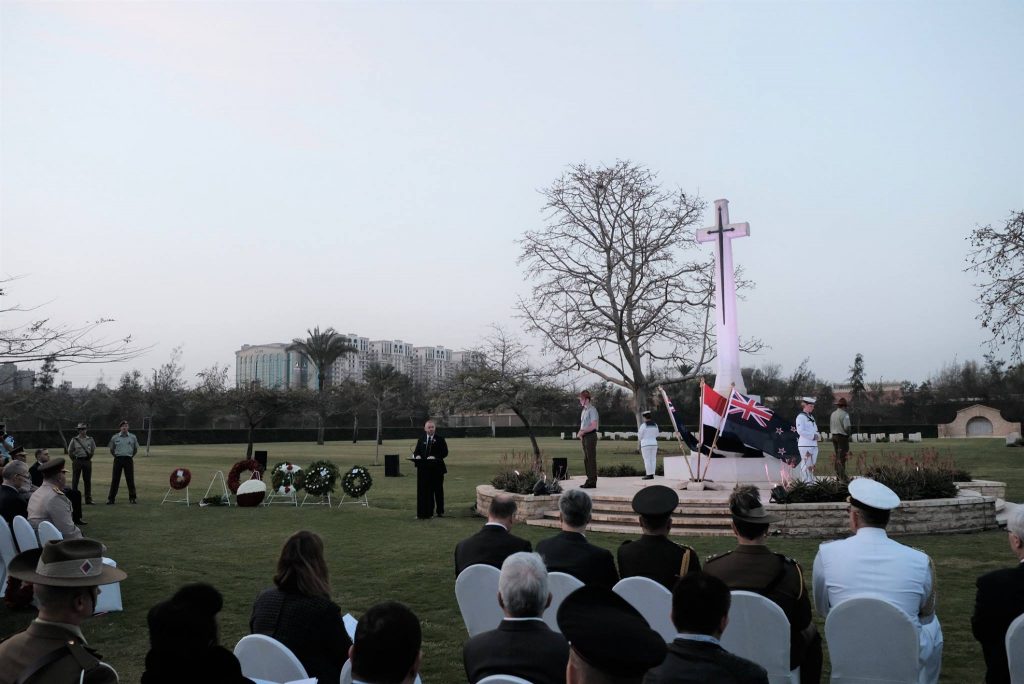
When you move on to today, there is that strong relationship that is perhaps, not as strong as it could be but it is still a very strong one and we obviously have a very large and very long standing Egyptian population in Australia. Until the seventies, most migrants who came to Australia would’ve stopped in Egypt because the shipping routes came to the Suez. One of my good friends and my grandmother stopped in Egypt before they came through and we we have photos of that. Today we have a population of approximately 100 to 110 000 Australians of Egyptian descent and many of whom have connections back here, so there is a strong relationship driven by people-to-people links. We have two Egyptian-born parliamentarians in our federal Parliament. They’ve got strong connections back here; I think Anne Azza Aly migrated to Australia when after university. Those sort of connections mean that Australians have a good awareness of Egypt.
Every week, you’re reading about an [Egyptian] discovery in the paper in Australia now. When I was back in Australia two weeks ago, three different newspaper articles in different newspapers were discussing antiquity discoveries. My son says Egypt is on everyone’s bucket list. Overall, I would describe it as a good relationship but it could be better and we have to work on that; that’s the embassy’s job.
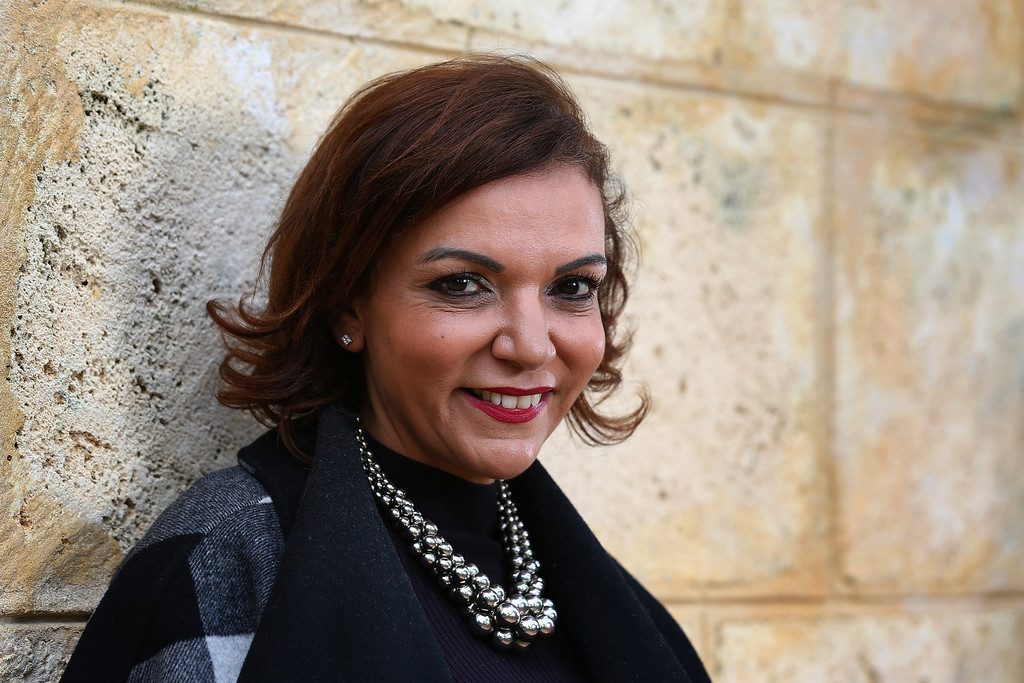
Source: AU Customer
Many Egyptians, and even Australian travel agencies, complain about the Smart Traveler warning which advises Australians to ‘reconsider traveling’ to Egypt. Often, Egypt is compared to many other countries with worse security situations but which have a lower level of warning. What are your thoughts? Do you think this warning will be lifted anytime soon?
Our travel advice is how we see the current situation. A lot of people look at the red coloring on the map and comment on the “do not travel” section; that applies to northern Sinai and the border areas with Libya and Sudan. We are quite open and honest telling people that they shouldn’t go there, and I think that the Egyptian government is also stating the same. What our travel advice do is try to assist people to make an informed decision. Travel advisories, including the one for Egypt, highlight the risk that you could face when traveling; it’s very detailed. We also encourage people to look at other sources of information, not just us, but also guidebooks, online resources and talking to friends. When people come to make their travel decisions, they can make an informed one, so there is a regular review of the travel advice. Each time we would carefully add to itt, but we do consider that the current level is appropriate.
Ultimately, people need to take responsibility for their own travel decisions, so lots of Australians are still visiting Egypt and we understand why, whether it’s visiting the cultural sites or coming here to visit family and friends or just because they want some adventure, they’re still coming here. Because the travel advice hopes to help make an informed decision so people know the risks that are potentially here. It’s very detailed and we just provide this advice; we have to be honest, we have no double standards; whatever conditions we apply on ourselves we have to inform the public about.
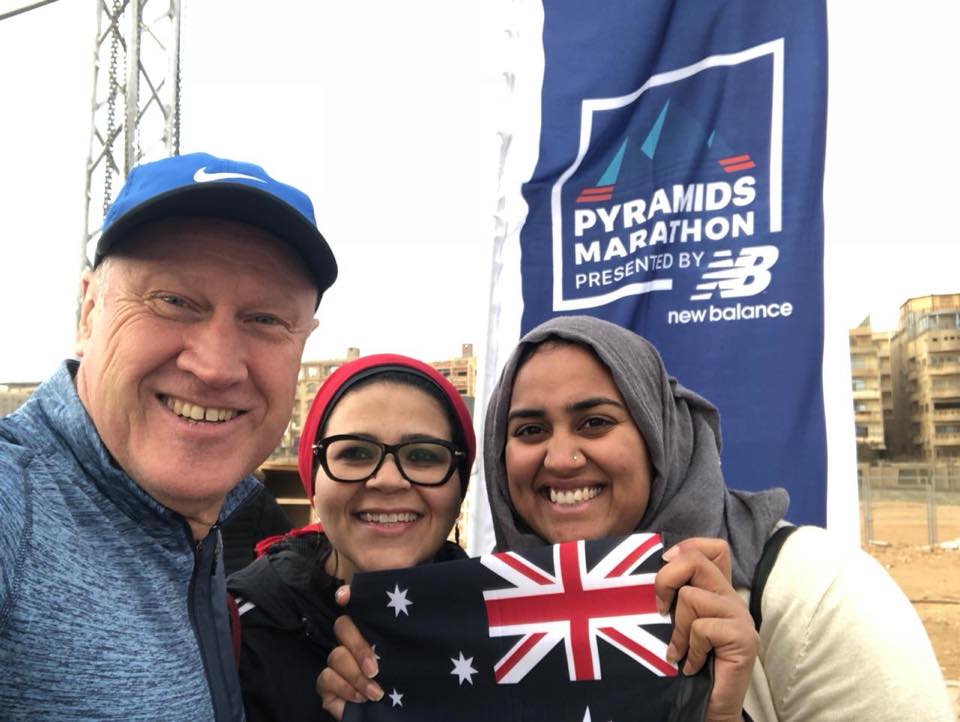
How do you perceive the human rights situation in Egypt? Have you witnessed any improvement recently?
I have only been here for three four months, but we do have an ongoing dialogue with Egyptian authorities over human rights issues. Earlier this week, I met with the Parliamentary Committee on human rights and we had frank discussions; they are two-way discussions and we very much value that. For us, it is about dialogue; there are other countries who raise concerns about human rights in Australia as well, so we raise them here.
There will be differences of opinion on treatment of cases, but provided we can have that dialogue, I think that is important particularly as we move towards the universal periodic review which will be in Egypt around November 2019. In Australia, it is in the late 2020. We will be engaging Egyptian authorities as we approach the UPR review for Egypt but also to talk about the UPR review for Australia, so it is an ongoing dialogue.
As an Australian Ambassador in Egypt, how do you see the future of Egypt, specifically concerning development and economic and social growth with Australia (i.e. Australian corporate presence, security and so forth)?
Before I came here, I was doing calls in Australia and I got different views on how Egypt was progressing in terms of its economic development and social development. But since I’ve been here, I am far more optimistic about Egypt’s chances on going forward and its development opportunities. The economic reforms have obviously had an impact, they’ve managed to stabilize the economy and that is the first stage in securing further growth so that you can attract foreign investments.
When you look at Egypt from the outside, you realize it is a big and reasonably well-developed market of 100 million people. The country has a commitment to reforms and also the opening of the economy; from our perspective, that’s positive. Economic growth is never a smooth trajectory, there’s always ups and downs. You always have to do the best you can to try to adjust your policy setting to make sure there is both an equitable distribution of growth as well as encouraging job creation and companies to come and invest. I see there is real opportunities; I think Egypt has turned the corner in that regard and there are a lot of positives when we look ahead.
What is Australia’s vision on helping with development in the region, namely through efforts such as DAP and CAAC?
For us, DAP (Direct Aid program) is a very important part of the Embassy’s operations and Nancy looks after it. I’ve had a few postings and in all of them, DAP(Direct Aid program) has been a way for the embassy to be engaging with people on the street. It becomes very important as a way for providing small support to organizations and communities across the country. we aren’t the biggest aid donor here and that’s partly geographically; we obviously have a very strong interest in southeast Asia and the Pacific which is where a lot of our development focus goes. At the same time, we recognize the importance of having development projects here in Egypt. DAP serves that purpose; we have about $400,000 a year which we can use for small grants between $20-$30,000.
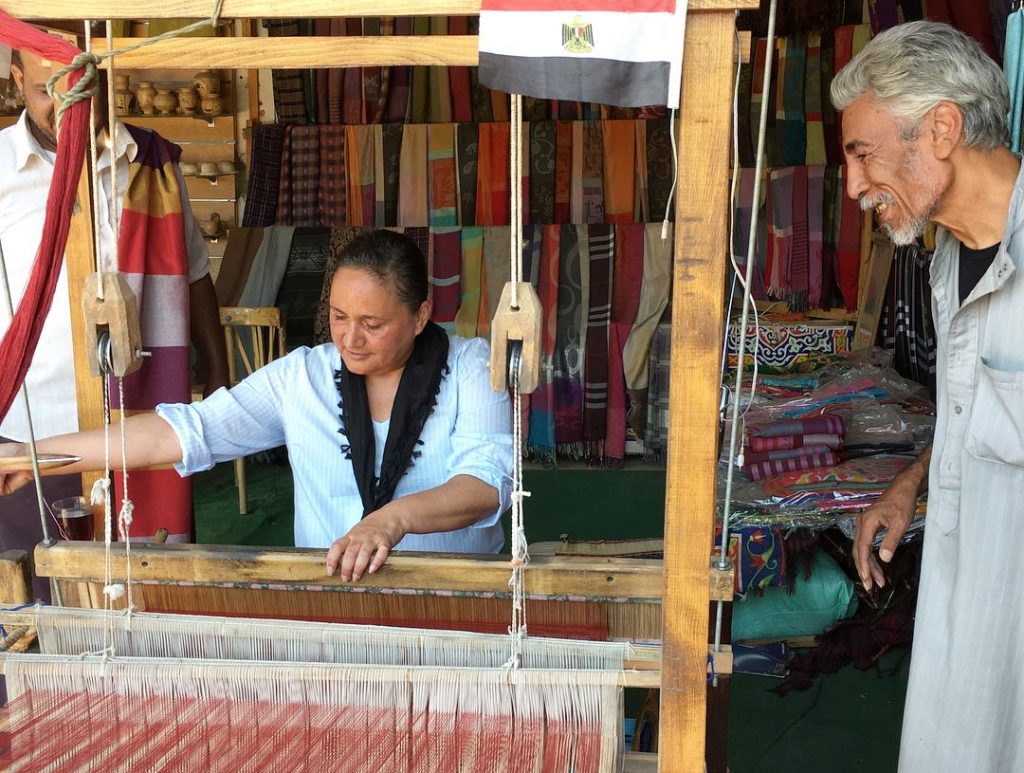
We also provide some money through UN organizations but of course that goes into a big budget and we don’t really get to see the outcomes of that. Some of the DAP projects that we have done are working with this American University in Cairo, to install solar panels and drinking water stations, in the Farafara oasis, supporting Al Shehab foundation to provide legal support psychological services, health and education to vulnerable women in Cairo and Alexandria, supporting the national research center on treatment of hepatitis C and diabetes in the Nile Delta and helping Egypt manage the burden of hosting refugees populations by hosting vocational training for migrants and Egyptians through the Don Bosco Institute.
Do you think that the current trade relations between Egypt and Australia accurately reflect the trade and investment potential?
I don’t think they do. We had an Australian trade delegation come through earlier this week and I addressed them and the Egyptian Business Group that attended some of the functions. You look at Australia and realize this is where the major trading economy is: we have the 13th largest economy in the world, we are top 10 in terms of GDP per capita. Our trade with the UAE for example is over $6 billion a year but Egypt it is about $600 million, so it doesn’t reflect the size of either the Australian economy or the Egyptian economy and also the complementarity that exists between two countries.
There’s a lot of reasons for that and one of them is perceptions. When I talk to Egyptian business people, they will say that they would love to go to Australia but it is too far away although we believe the journey is worth it. It is a long way but when you get there you will find a world-class economy. We our world leaders in agri- business, mining, education (we are the second or third provider of education for international students so we have a huge education sector), IT across the range of sectors. We are trying to get Egyptians aware of that because most Egyptians just think of kangaroos when asked about Australia, so we are trying to get Egyptians to move beyond that.
When people arrive to Australia, they’re really shocked to see that Melbourne, Sydney, Brisbane or Perth are big global cities. Melbourne has been voted the most livable city in the world for almost six years running; it is very modern and technologically advanced. For Australia, when talking to business companies, Egypt is seen as being in a difficult region and being a difficult business environment, the instability in the region means that people are less convinced of the need to go there. We also have big markets on our doorsteps now: we have China, Japan Korea, South east Asia so have to be getting the Australian companies to move their focus from from looking north to look out across to Egypt. I think, as we move forward, you will see more Australian companies starting at Egypt as a potential destination particularly if these growth trajectories and economic reform programs continue, and the government continues to liberalize economy, Australian companies will be taking advantage of that.
We already have Australian companies in Egypt: Centamin, which is operating goldmines – probably our biggest sector- down South. There is a lot of potential in mining. We are looking forward for the the government to introduce mining reforms in the sector to encourage the companies to come through and invest in mining. Gourmet shops which provide meat and egg, basically high-end quality products from Australia.
WorleyParsons also has a project here. It is an engineering and consultancy company. Mineral Technology is another Australian company doing business here, assisting with mineral sands mining projects. These are companies here that are doing good business, and when we speak to them they say they have noticed a positive change in Egypt over the last two years in terms of engagement.
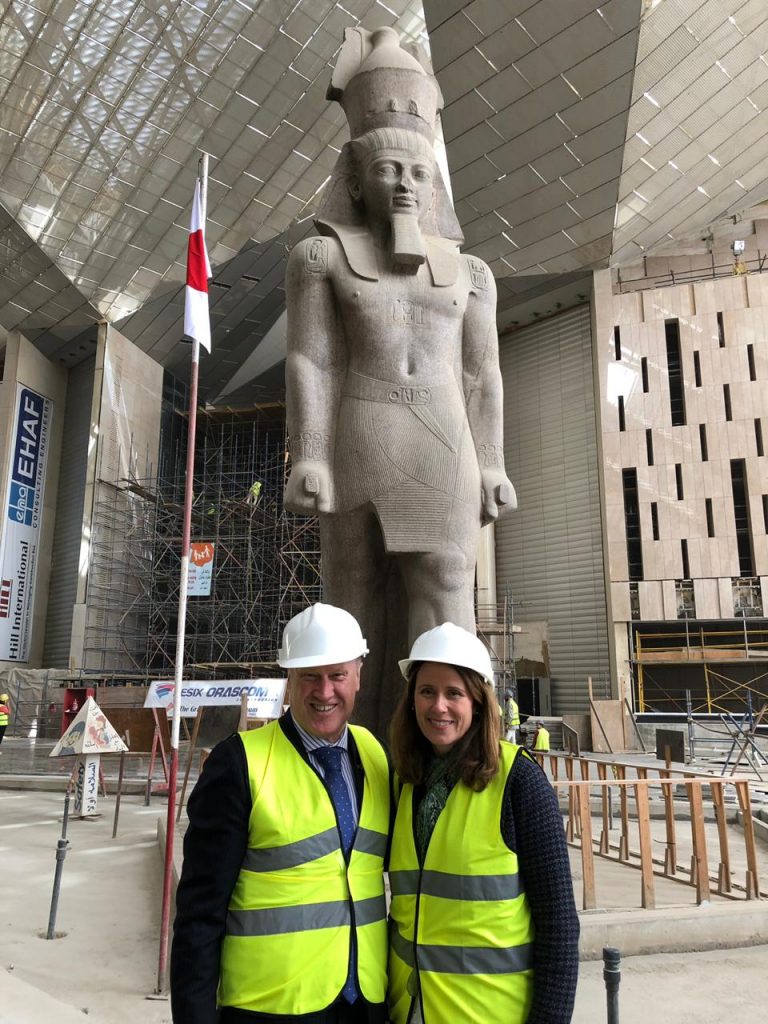
You’ve recently visited the Grand Egyptian Museum and the Tutankhamun exhibit is set to visit Sydney later, is there an Australian interest in ancient Egypt?
Everyone is interested in ancient Egypt and Egyptology. When I was talking to the minister of tourism here, she was saying that we need to promote beaches like Sharm El-Sheikh and Hurghada, but I don’t think Australians will fly all this way to go to the beaches; we have many beautiful beaches in Australia but what we don’t have is cultural sites like you do here. Also, Macquarie University has a prominent Egyptologist Naguib Kanawati, he was telling me that Macquarie University is one of the leading Egyptology centers in the world. It has a large amount of students attending his courses. There are other universities as well but that’s probably the leading one in Australia with that interest.
So far, what fascinates you the most about Egypt? Has anything surprised you?
I think the modern art scene. I haven’t been here a long time, so I haven’t really gotten into it but when you go around and there is just this artistic vibe. There are arts centers, people painting, whether it’s traditional artists making tents in the old part of town around Khan El-Khalili, or moving on from that sort of and combining the ancient art with today’s artistic environment. We visited the Islamic Arts and civilization Organization, they had a book of modern Egyptian artists and some their work was amazing.
Another element is food. One of the good things here is that you have a real international cuisine scene. You walk around and there is Korean, Japanese and Mexican among others.
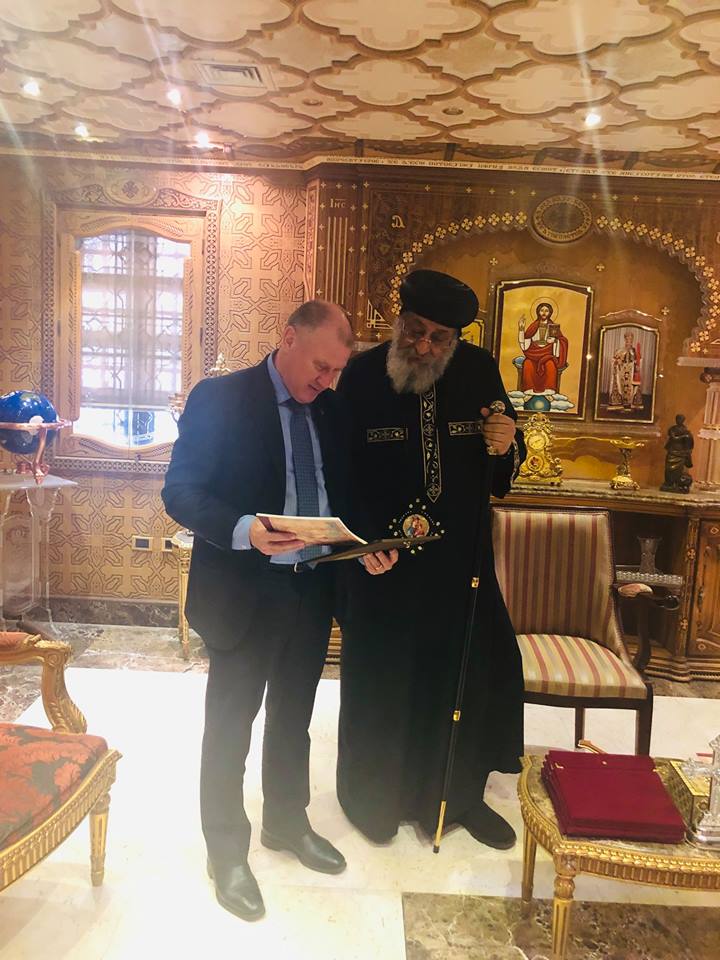
Are you following any sports in Egypt?
We follow four different football codes in Australia so we have soccer, rugby, rugby league and Australian football. They are very different. I follow the last one which is Australian football. One of the sports I did play growing up was squash. At the time there were some Australian champions who were number one or two in the world, we no longer seem to have many up there but Egypt does. I have been keeping an eye on squash over the years. The four top positions in the world in the moment are held by Egyptians which is amazing. Squash is still big in Australia. I’m playing squash here.
Any favourite Egyptian sports players, singers, actors and food?
Nour El-Sherbini for athletes. For food, one of our biggest exports from Australia is fava beans, I don’t know if you can tell but my favourite dish is Koshari. Umm Kulthum for music – I do have old CDs from my last time living here. For actors, I have enough trouble keeping with the Australian ones!
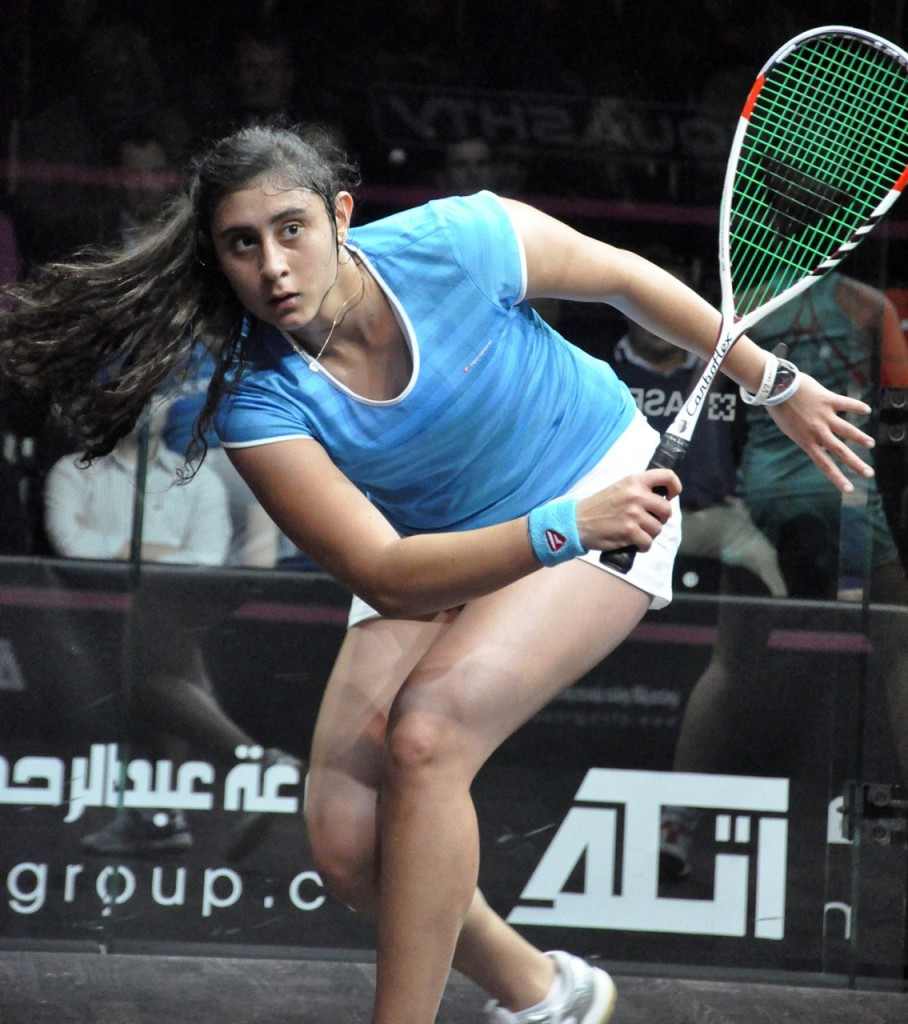
Is there any final message you want to give to our readers in Egypt, Australia and the world?
I have been here for four months with my wife. We enjoy being back and we look forward to being around the country and visiting, not just the main tourists sites but all the other places as well; I want to be getting out and experiencing Egypt as well as improving my Arabic language.
For those interested in keeping updated with the embassy’s event, check out its page on Facebook and follow the ambassador’s adventures in Egypt on Twitter!
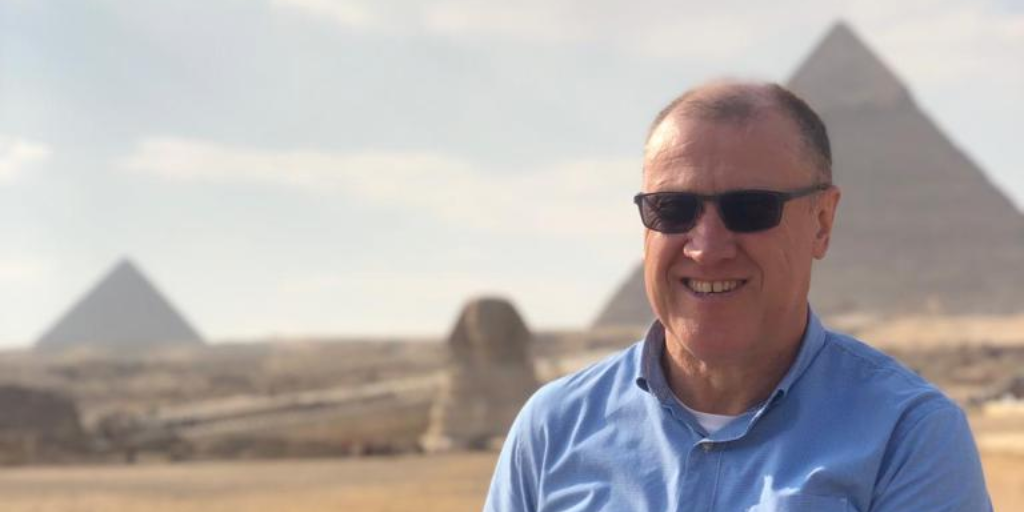



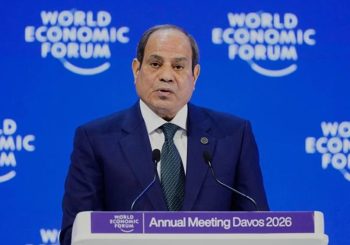
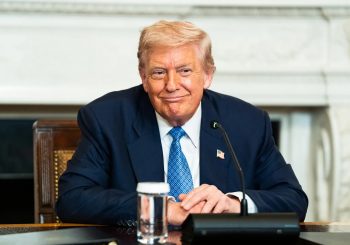
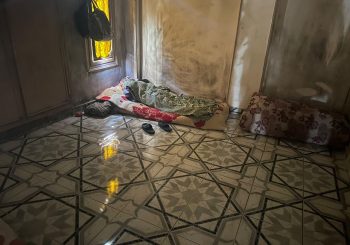
Comment (1)
[…] بارزة. سابقا ، أجريت مقابلات مع سفير نحنو تشيليو أسترالياو […]